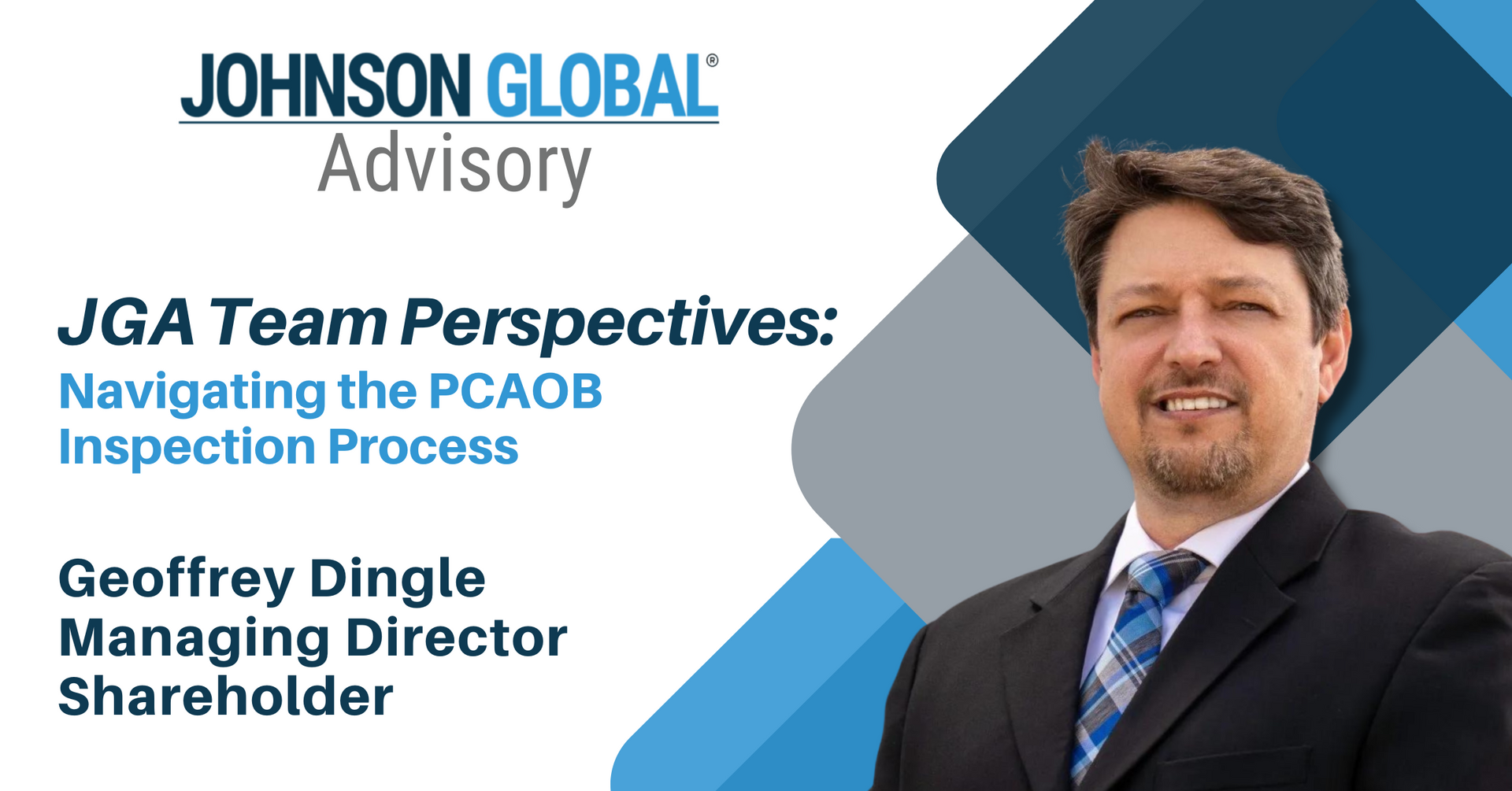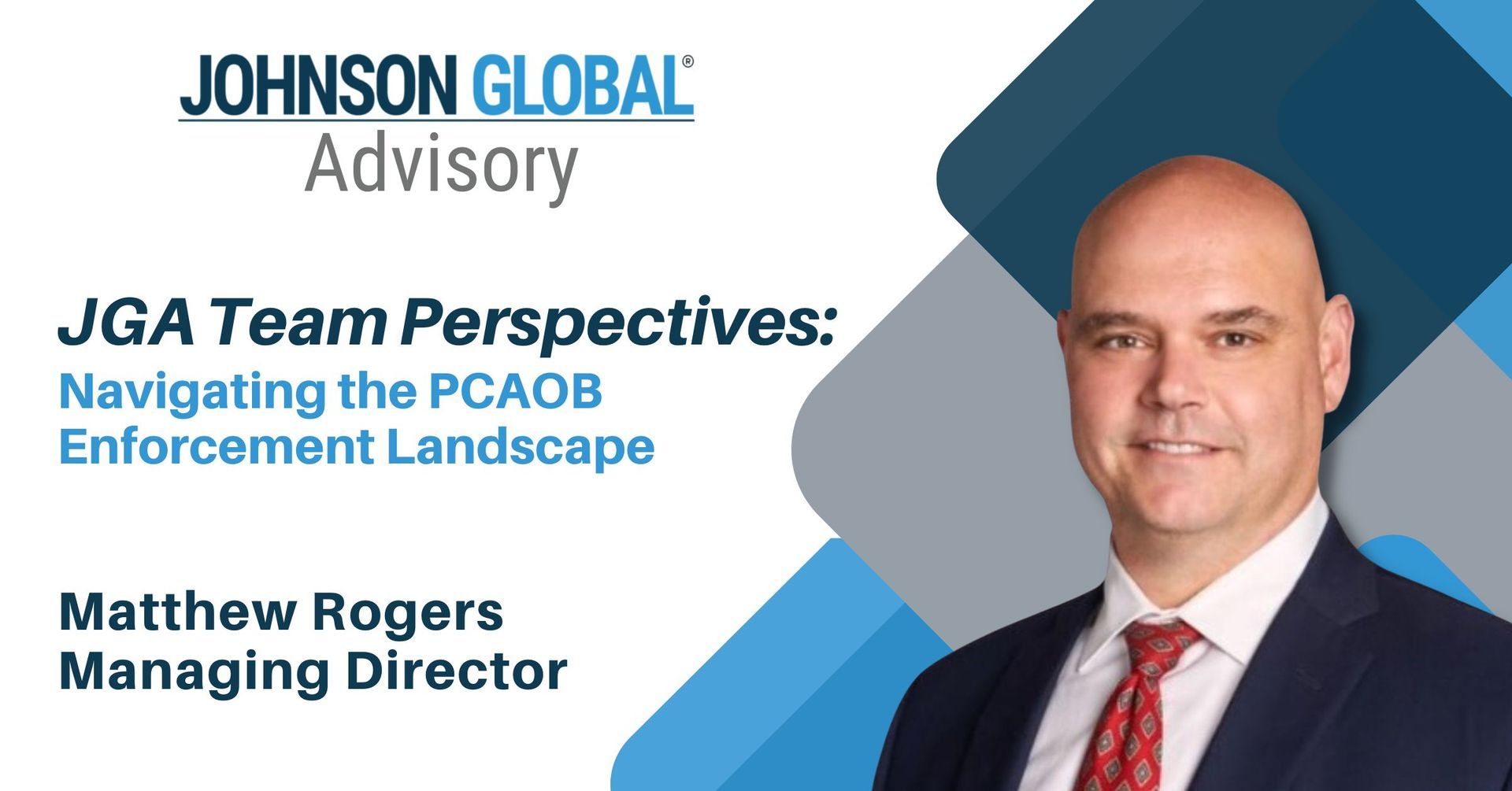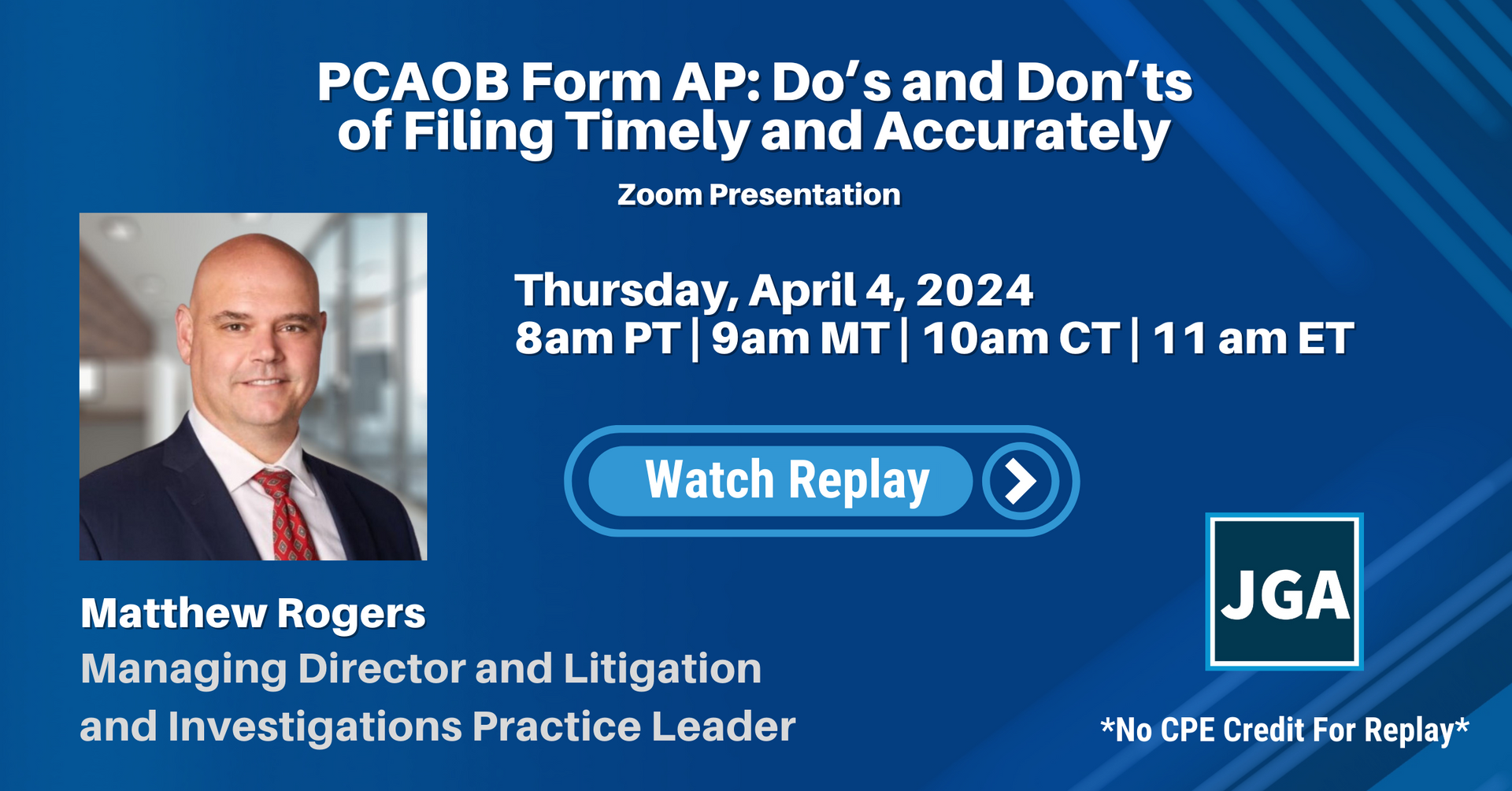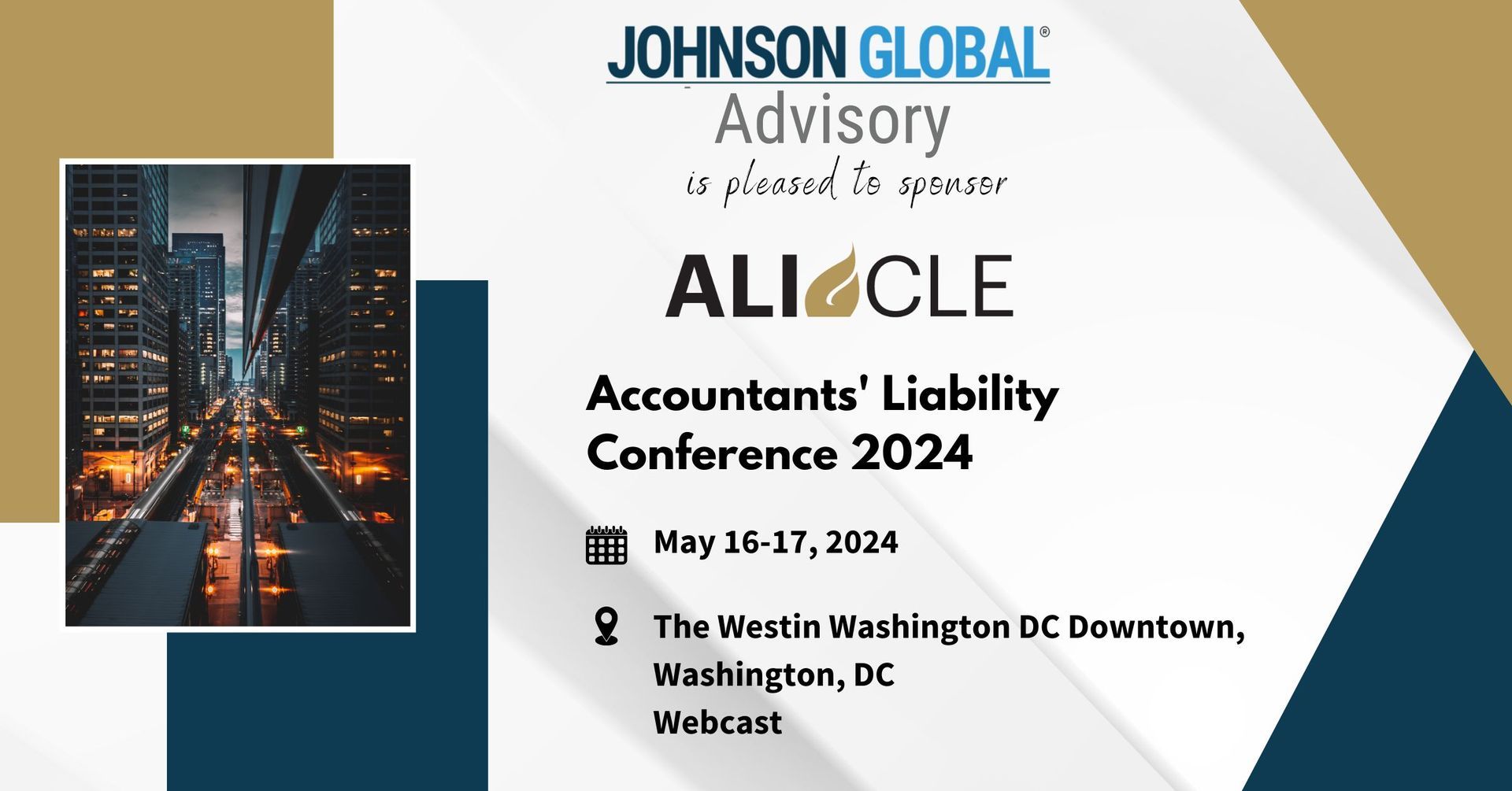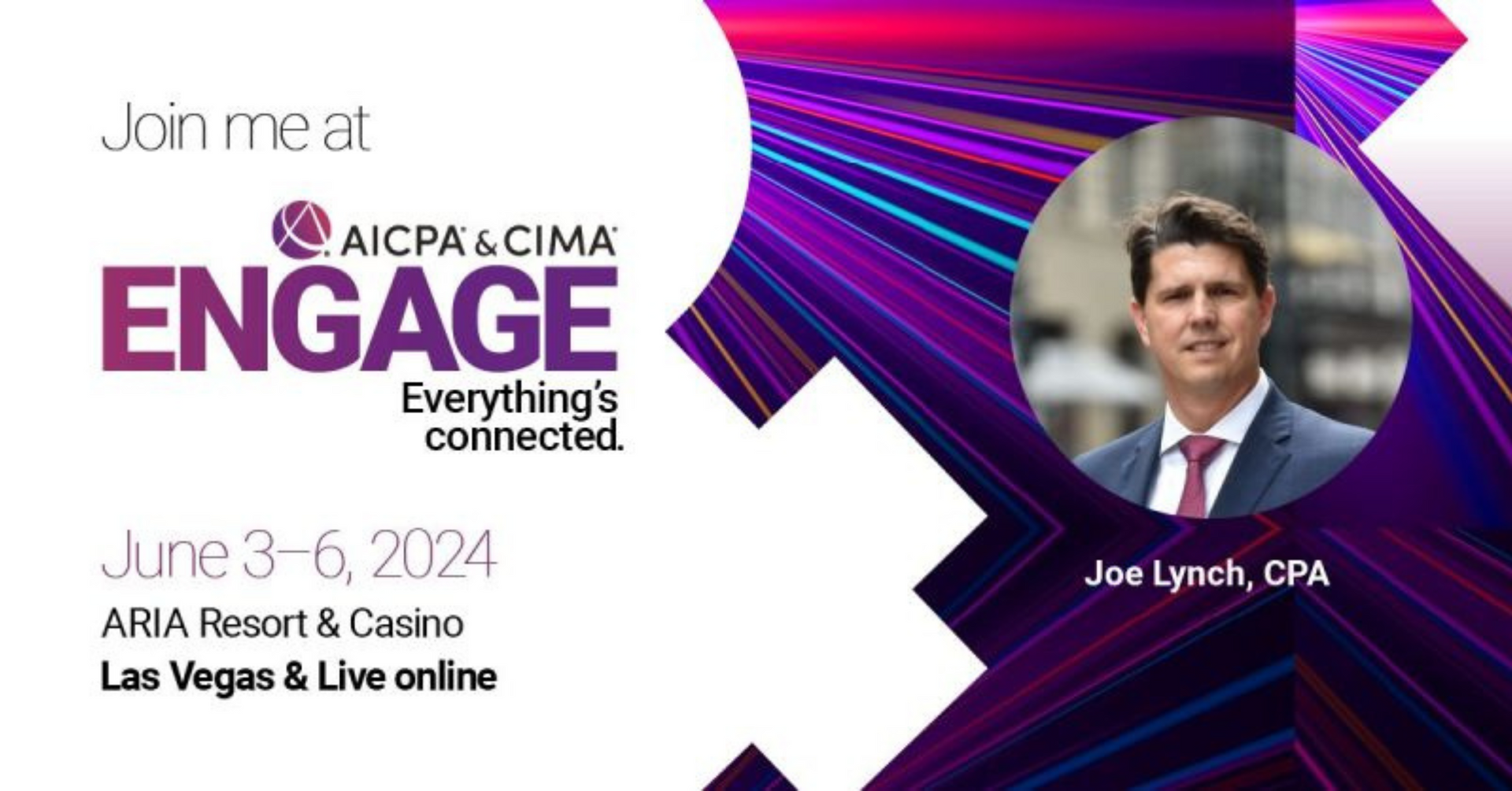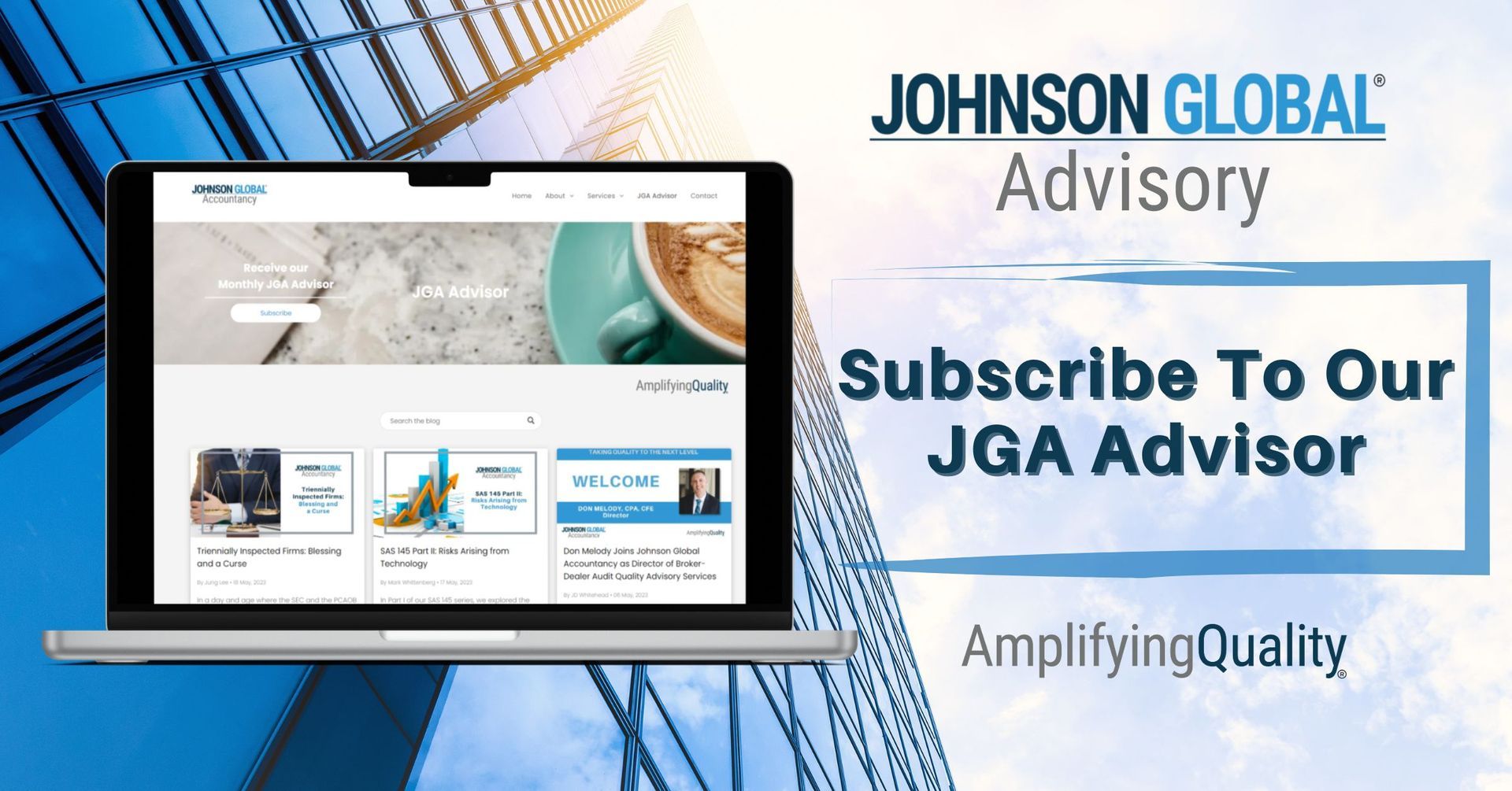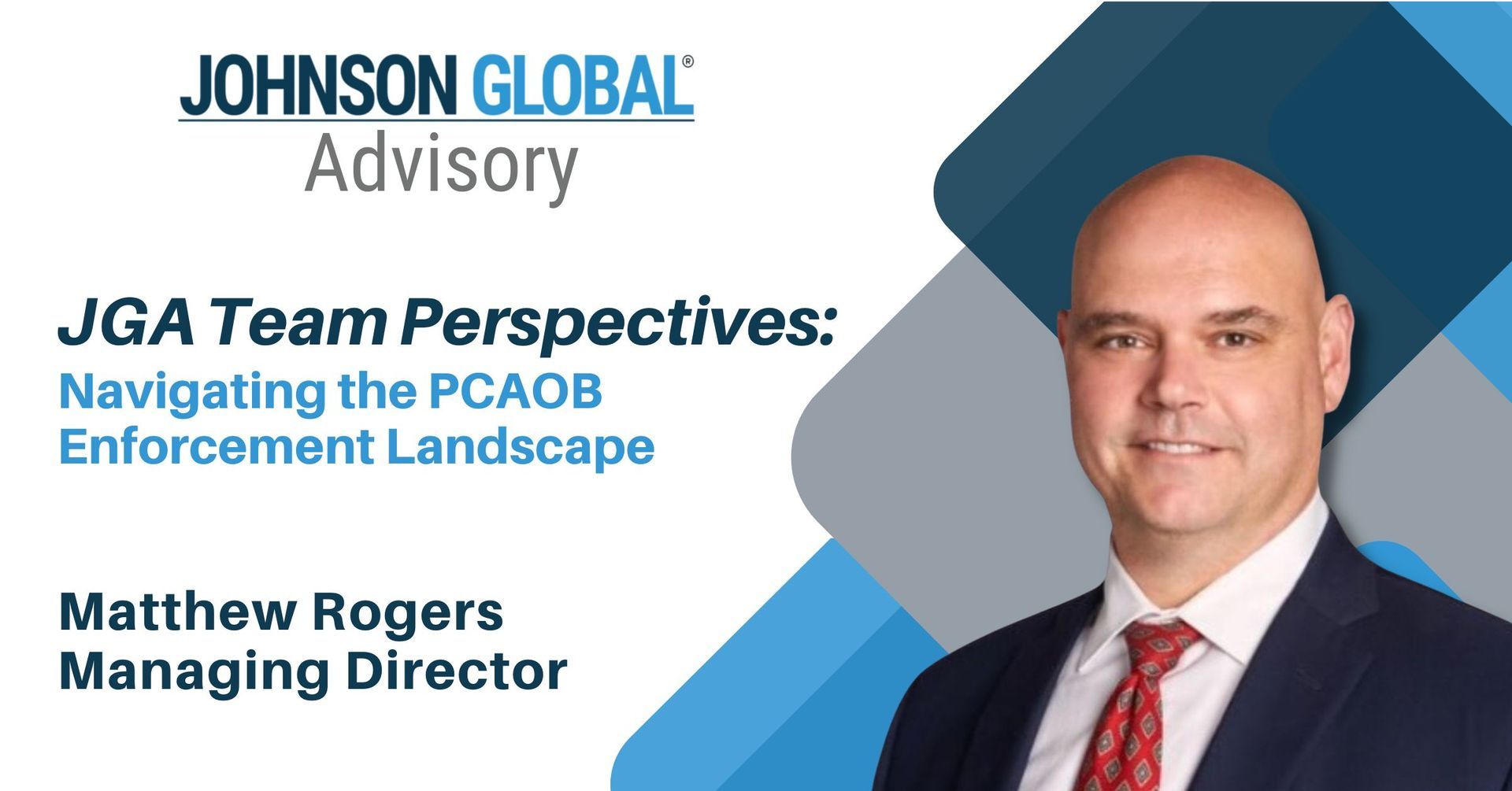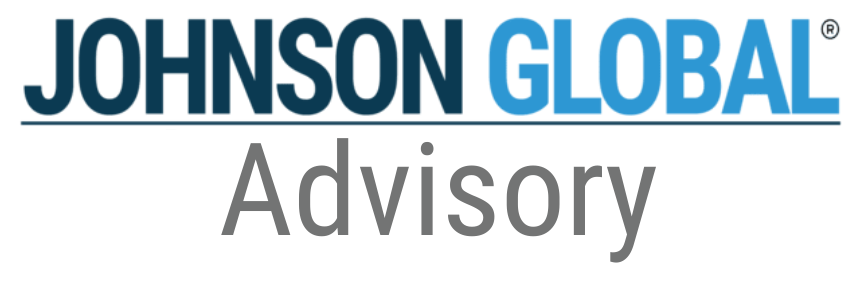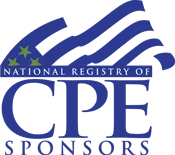By Geoffrey Dingle, Managing Director, Shareholder
•
27 Mar, 2024
Editor's note: This article is part of a series to highlight the unique experience that JGA professionals possess and deliver to our clients. As busy season winds down, it is an opportune time to reflect on challenges in ensuring audit quality and preparing for a successful outcome to the PCAOB inspections process. There are a myriad of obstacles to audit quality such as time constraints and the complexities of client engagements. Amidst these demands, audit quality remains the utmost priority. Geoff Dingle an author of JGA’s guide, Navigating PCAOB Inspections, Second Edition shares his insights on how firms can effectively prepare for the entire process. The Purpose Registered firms that issue at least one public company audit opinion are subject to inspection at least every three years. Every inspection is different based on the firm, its clients, and PCAOB priorities, but the overall process is the same. It is a long process that takes planning and coordination, and this guide addresses the main phases and pain points. “Through our work at JGA, supporting firms on PCAOB inspections, we are able to witness first-hand the struggles that some firms encounter as they work through the inspection process with the regulator. Although some of this information is available on the PCAOB’s website, we have been able to consolidate our own experiences having supported over 100 firms during their inspections. JGA has a team of alumni from the regulator that have led inspection teams and quality management initiatives, with over 139 years of combined experience at the PCAOB and SEC,” says Dingle. The Process The inspection process often takes more than two years (sometimes as long as four years) from initial notification of an inspection to the final remediation determination. It can take weeks to months to issue comment forms after the inspection week. Report finalization is getting faster but it can still take more than six months to issue an inspection report to a firm. If there are few issues, the PCAOB can respond quickly, but with multiple findings the process oftentimes takes longer. After report issuance Firms have 12 months to remediate Part II findings and provide these remedial plans to the PCAOB for evaluation. Pre-Inspection The PCAOB provides the dates for its intended inspection week. The notification letter includes the period being inspected, questions, and requested documentation about the firm and its clients. There are not many pain points at this stage, but there is typically a four-week deadline to respond. The PCAOB contacts the firm two to three weeks before the inspection starts with the names of the issuers selected for inspection and requests specific information and access to the workpapers for these audits. “We always recommend that firms hold internal meetings to assign responsibilities between the engagement teams and the national office and plan for the inspection. Prep week - the week before the inspection, can be stressful. We suggest that engagement teams go back through their audit files to re-familiarize themselves with the workings of the audit file,” Geoff continues . Key Points About The Process Before COVID, inspections were conducted in-person. Now the majority of the inspections are performed virtually. “With the engagement team and the inspection team not being in the same room, we have observed inefficiencies in getting matters resolved because of the need to coordinate firm personnel and inspection personnel, across various time zones, locations, and schedules,” he mentions. During the inspection week, the PCAOB provides detailed questions to the engagement team regarding the audit file. It’s a mix between written questions sent to the firm and asked questions during meetings. All questions are answered in subsequent meetings. With the remote process, meetings are scheduled to address and answer these questions. “Our own experience is that if a particular line of questions continued for the week (i.e. the engagement team’s response is not satisfying the inspector), then chances are there will probably be an issue that will result in a comment form,” Geoff adds. Be ready for multiple layers of questions on the same subject by providing details based in the working papers and show a deep understanding of the audit. Inspection issues are usually riskier areas involving judgements. Audit documentation should “tell the story” of how auditors came to their conclusions, not just what the conclusion was. Audit documentation should describe in detail what considerations were made by the engagement team in coming to their judgment (i.e. how any contradictory evidence was addressed; why the engagement team went with one model over another, etc.). If judgments are not well documented, the PCAOB has no alternative but to conclude that sufficient procedures were not performed. Comment Forms A few weeks after fieldwork is completed, the inspection team provides comment forms that include a summary of the deficiency and the facts related to the issue. Firms have 10 business days to respond. The Inspection Report Part I inspection findings are in the report’s public portion. Part I.A deficiencies indicate the firm had not supported its opinion on the financial statements, ICFR, or both. Part I.B findings are compliance issues which do not specifically compromise the audit opinion. Part II findings are related to the firm’s system of quality control and are in the report’s nonpublic section and these are not shared with the public. Firms have 12 months to remediate Part II findings before they can become public if the PCAOB concludes that the firm did not adequately remediate. Frequent Part I.A findings in an integrated audit relate to testing controls, testing estimates, and use of service auditor reports. Part I.B findings may result in enforcement cases and include incorrect opinion language, independence breaches, audit committee communication issues, and incomplete or late filing of Form AP. Responding to Findings in Part II of the Inspection Report Ultimately, the firm has 12 months to communicate to the PCAOB how it plans to remediate quality control findings. Geoff provides his insights on the importance of root cause analysis, “In our experience, firms do not do a great job of root cause analysis to identify the remedial action needed for deficiencies because they do not dig deep enough. We review comment forms and related workpapers to understand why the PCAOB issued the comment, and then we interview the engagement teams about root causes, to understand whether the issue was related to areas like staffing, partner workload, supervision and review, technical competence, audit methodology, or firm tools. In fact, firms will soon be compelled to do a rigorous root cause analysis as the proposed quality control standard (QC 1000) requires root cause analysis.” A proactive approach to remediation, specifically quality control findings allows for firms to make corrective actions based on their root cause evaluation and provide time to see the updates work their way through the firm’s audit cycle. Showing examples of the new process goes a long way. See our contribution to Journal Of Accountancy, Quality Management Standards: How to Perform a Root Cause Analysis . “We advise firms to address Part II remediation findings early. If they wait until they receive the report to start remediation, another inspection could start, and a repeat finding could result.” PCAOB guidance details five relevant criteria they use to conclude on the sufficiency of remedial actions. Every firm’s quality control processes are different, so we work with clients to apply the guidance to their own remedial actions and avoid repeat criticisms.” , Geoff mentions. In conclusion, the PCAOB has made it clear both through its speeches and its enforcement actions that they will be tougher on enforcing regulation and audit quality. Firms need to plan in advance to make sure the inspection process is as issue-free as it can be. That starts with making sure audits are completed in accordance with the PCAOB auditing standards, not when you get notified of an inspection. Firms should enhance their practice monitoring by engaging firms like JGA to perform in-flight reviews while the audit is happening. In that way, quality is achieved prior to the signing of the audit opinion. Interested in learning more about the PCAOB inspections process and how to prepare? Navigating PCAOB Inspections, Second Edition is a roadmap for firm management and engagement teams through the entire PCAOB inspection and remediation process, to help prepare for inspections and implement continuous audit quality improvements. Geoff Dingle, JGA Managing Director, Shareholder With more than 20 years of experience in the accounting and auditing industry, Geoffrey Dingle works with public accounting firms to help them achieve the highest level of audit quality. Geoff brings a diverse set of experiences to JGA. As an Associate Director for almost 10 years, in the Division of Registrations and Inspections at the PCAOB, he conducted inspections of quality control and issuer audits. In addition, he played a senior role in planning, executing and reporting on the annual inspections of Global Network Firms, including, but not limited to, quality control procedures, review of comment forms, development of the inspection report criticisms and quality control themes, and evaluation and review of Firm root cause analysis and remedial actions. To learn more about Geoff and the JGA Team visit the Meet Our Team page.

